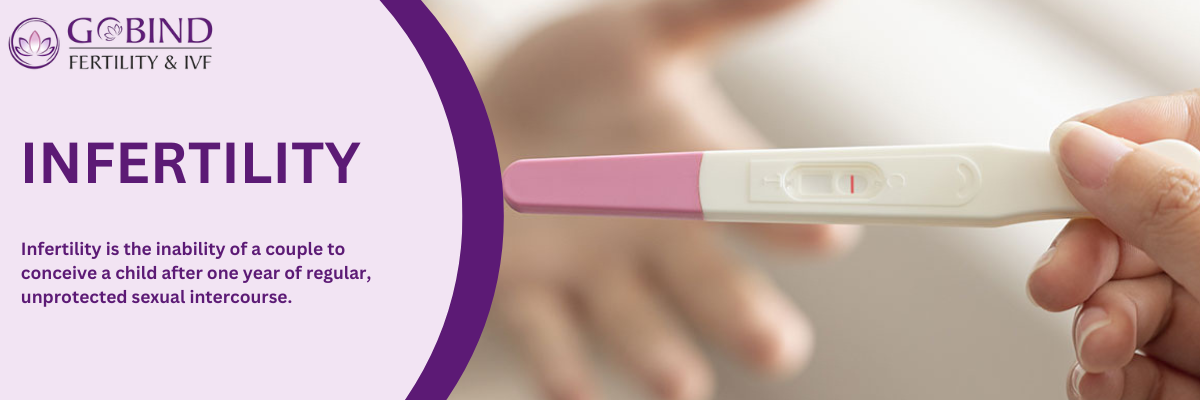

Infertility
Infertility is a disorder defined by the inability to generate a clinical pregnancy following 12 months of regular and unprotected sexual activity. It is estimated to affect 8 to 12% of reproductive-aged couples worldwide.
The inability to become pregnant after a particular amount of time or to carry a pregnancy to term is known as infertility. It is a widespread problem that affects millions of couples globally, and for those who want to start or grow a family, it may be a difficult and emotionally draining journey. Couples dealing with infertility issues must have a thorough understanding of infertility, including its causes, diagnosis and available treatments.
Causes of Infertility
Infertility can be caused by a variety of factors, both in men and women.
Men: Low sperm count, low motility, abnormalities of the sperm, hormonal imbalances, anatomical abnormalities, genetics, and lifestyle problems like smoking, binge drinking, and drug usage.
Female Factors: Age-related loss in fertility, endometriosis, polycystic ovarian syndrome (PCOS), blocked fallopian tubes, uterine or cervical problems, ovulation disorders, hereditary factors, and lifestyle variables.
Combined Elements: Infertility is a difficult problem that necessitates a comprehensive approach to diagnosis and treatment because it can result from a combination of male and female causes in certain circumstances.
Diagnosis of Infertility
The first step in diagnosing infertility involves a thorough evaluation of both partners to identify any underlying causes:
- Medical History: A detailed medical history of both partners, including any previous pregnancies, surgeries, or medical conditions.
- Physical Examination: Physical examination of both partners to check for any anatomical abnormalities or signs of underlying health issues.
- Diagnostic Tests: Specialized tests such as semen analysis, hormonal tests, ovulation monitoring, ultrasound, hysterosalpingography (HSG), and laparoscopy/hysteroscopy to evaluate reproductive health and identify potential causes of infertility.
Treatment Options for Infertility:
Treatment options for infertility vary depending on the underlying causes and may include:
- Medical Treatments: Medications to stimulate ovulation, regulate menstrual cycles, or address hormonal imbalances in both men and women.
- Surgical Treatments: Minimally invasive procedures to correct anatomical abnormalities, remove obstructions, or repair reproductive organs.
- Assisted Reproductive Technologies (ART): Procedures such as Intrauterine Insemination (IUI), In Vitro Fertilization (IVF), Intracytoplasmic Sperm Injection (ICSI), and donor egg or sperm treatments to assist with conception.
- Lifestyle and Nutritional Guidance: Guidance on lifestyle modifications, nutritional supplements, and dietary changes aimed at improving fertility and overall reproductive health.
- Emotional Support: Dealing with infertility can be emotionally challenging for couples, and it's essential to seek emotional support and counseling to cope with the stress, anxiety, and emotional impact of fertility treatments.

















